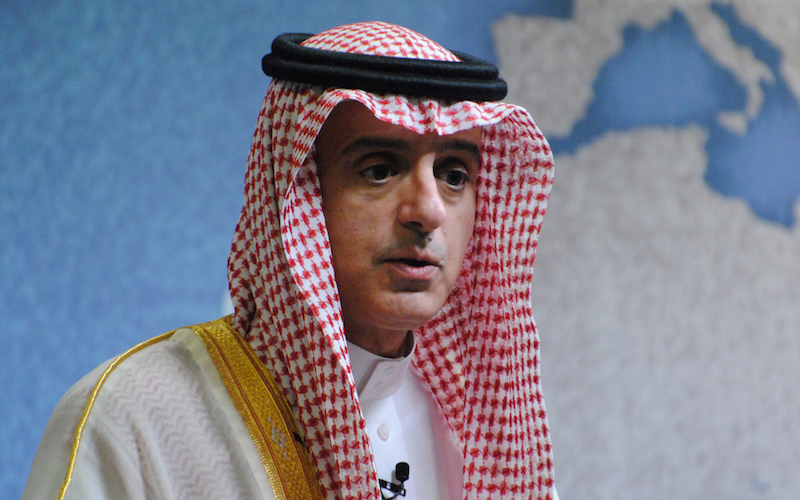
The Reluctant Balancer: The U.S. and the Qatar Crisis
The Middle East is a notoriously unstable and conflict-ridden. Location and massive energy resources make the region’s geopolitics a major concern for statesmen in Washington and around the world. From Libya to Iraq, intractable crises involving extremely weak state structures, ethnic and sectarian tension, and terrorism have imposed enormous suffering on the local populations and invited foreign military intervention, particularly on the part of the United States. Within this framework of conflict and instability, the oil-rich monarchies of the Persian Gulf usually stand out as stable and reliable regimes, in spite of their lack of democratic credentials and poor records on human rights and civil liberties. Today, however, even that aura of stability is seriously shaken by the row between Qatar and its neighbors.
On June 5, 2017, Saudi Arabia, along with other Gulf monarchies and Arab and Muslim countries including Egypt, suspended diplomatic and economic ties with Qatar. At the heart of the controversy, the Saudi-led coalition maintains, are Qatar’s ties with Iran and its ambiguous and supportive attitudes toward extremist groups engaged in terrorist activities in the region. On June 23, the Saudis and their associates issued a 13-point ultimatum that Qatar was required to meet within ten days in order to have the sanctions lifted. The list includes cutting diplomatic ties with Iran; severing ties with “terrorist organizations” such as the Muslim Brotherhood, Islamic State, al-Qaida and Lebanon’s Hezbollah; shutting down the al-Jazeera news network; and terminating Turkish military presence in Qatar.
Even before the deadline, Qatar announced its intention to reject the 13 demands. Leaders in Doha appear determined not to make concessions whose legitimacy under international law appears questionable and that may be interpreted as a surrender of national sovereignty, although they don’t rule out the possibility of a negotiated solution. In the meantime, the Saudi-led coalition has confirmed the sanctions regime and announced that further steps might be taken.
This is not the first row between Qatar and its neighbors, Saudi Arabia in particular. The Saudis and their associates have a point. Qatar’s rulers are indeed ambitious and have a penchant for using their money to boost their country’s image in questionable ways, and sustaining an activist foreign policy that has created some resentment among its neighbors. On close scrutiny, however, the Saudi demands sound draconian and geared at publicly demeaning and diplomatically isolating Qatar. The strict economic sanctions are creating serious problems such as food shortages. Qatari stocks have plunged. Given that they share the world’s largest gas field, it seems virtually inevitable for leaders in Doha to cultivate a good working relationship with Iran – which is in fact helping the Doha government ease the most troubling humanitarian consequences of the row with its Arab Gulf neighbors. Qatar’s ambiguity toward radical Islamist groups, moreover, is not that different from the attitude of the other Gulf monarchies.
Asked whether the Doha government expected military actions as a result of Qatar’s rejection of the 13 demands, Sheikh Mohammed bin Abdulrahman al-Thani – Qatar’s Foreign Minister – said his country was not afraid but believed that wisdom would prevail. Such a facade of confidence may conceal a certain unease, and – most important – an awareness that in order to get out of the crisis unscratched, Qatar needs support from major allies, particularly from the US. In fact, a little far from the spotlights, it seems that Qatar’s leaders are indeed relying on mediation efforts by Kuwait and the United States.
America’s role in the Qatar row is critically important. For better or worse, the United States has been for decades the key to the regional balance of power and the protector of the oil- and gas-rich Arab monarchies of the Persian Gulf. In fact, on closer look the whole crisis appears as a power audit aimed at assessing whether the new leadership in Washington will uphold the status quo or be prepared to let its Gulf partners struggle to redefine the regional equilibrium. On the one hand, the Saudis are trying to raise pressure on Qatar in order to tame a neighbor that they see as too ambitious and independent in the conduct of its foreign relations, and too friendly with Iran – Saudi Arabia’s arch enemy. They seem to bet that the new administration in Washington will support their bid for stronger leadership in the region. President Trump’s confrontational stance toward Iran appears to have reinvigorated the US-Saudi relationship. In addition, Saudi Arabia’s new heir to the throne – Crown Prince Mohammed bin Salman – appears to have established close ties within the White House.
Trump himself has expressed support for the bold stance adopted by the Saudi-led group. On the other hand, the Qataris seem to be betting that in the event, the US will prefer the status quo and will not be prepared to let their allies squabble in a region that has tremendous economic and military importance. Qatar is a long standing ally – just like the other Gulf monarchies. In addition, it hosts a major US military base and is a key military partner of the US in the region. In fact, both Secretary of State Rex Tillerson and Secretary of Defense James Mattis have released statements that indicate that the US supports a sober and negotiated solution. If the Qataris are right, they may have to bite the bullet for a while and probably make some concessions, but in the end they should substantially preserve the freedom of maneuver that they have carved for themselves.
From the standpoint of the geopolitician, the US appears to have an overwhelming interest to cajole its bellicose Gulf partners into a peaceful settlement. It seems very hard indeed to believe that someone in Washington is prepared to even remotely risk a military clash among oil-rich US allies in a region that is crucially important for both strategic and economic reasons – and against a country that hosts thousands of US soldiers as well as major US military command centers. Hence, when Washington’s interest are factored in, the most likely way out of the crisis appears to be a slow, perhaps bumpy, but ultimately negotiated solution. However, the discrepancy between President Trump’s personal statements and the prevailing attitude among his top foreign policy advisers, as well as bureaucrats within the Beltway, may have added an element of uncertainty.
It seems important to recall, moreover, that by July 1914 almost nobody expected a World War, and by July 1990 very few analysts and policy-makers around the globe expected Iraq to actually invade Kuwait. In retrospect, miscalculation played a crucial role in both cases, while efforts on the part of major powers to manage the crises and deter potential aggressors proved inadequate. As the Qatar row drags on, that should serve as a cautionary tale for President Trump and his staff.
“Deals are my art form,” Donald Trump wrote in The Art of the Deal, “I like making deals, preferably big deals.” Incidentally, during the 2016 presidential campaign Trump stated that “In a Trump Administration, our actions in the Middle East will be tempered by realism.” Qatar and its neighbors, it turns out, badly need a shot of pragmatism and a shrewd dealmaker to get out of the impasse. Washington holds the key to peace and stability in the Gulf. The Qatar row will be a critical test for the president and his foreign policy team.

